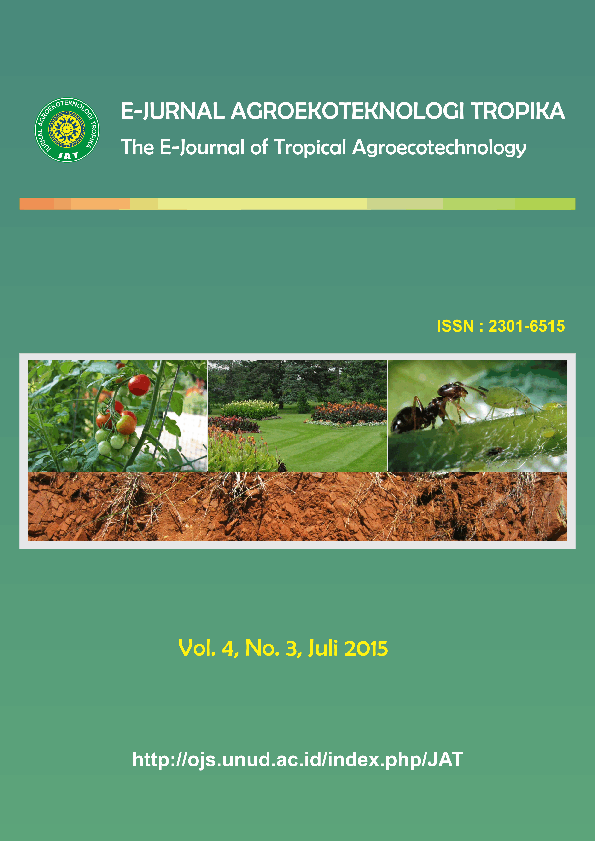Pengaruh Dosis Pupuk Kascing Terhadap Hasil Tanaman Sawi (Brassica juncea L.), Sifat Kimia Dan Biologi Pada Tanah Inceptisol Klungkung
Abstract
ABSTRACT
The Effectt of Vermicompost Dose on Mustard Plant (Brassica juncea L.) Result, Some Characteristics of Chemistry and Biological
Inceptisol Soil Klungkung
This study was carried out on Inceptisol soil in Timuhun village Banjarangkan District, Klungkung and Soil Laboratory of Agroecotechnology Departemen / Studi Program, Faculty of Agriculture, Udayana University on March until April 2014. The purpose of this study was to determine the effect of vermicompost dose on Mustard Plant product, some chemical, biological soil, characteristics and determine the best dose vermicompost. The study design was a Randomized Group Design. The treatments used are organic vermicompost consisting of 9 levels i.e. O0 :Control; O1 : 2,5 ton ha-1 ; O2 : 5,0 ton ha-1 ; O3 : 7,5 ton ha-1; O4 : 10,0 ton ha-1 ; O5 : 12,5 ton ha-1 ; O6 : 15,0 ton ha-1 ; O7 : 17,5 ton ha-1 ; O8 : 20,0 ton ha-1. Each treatment was repeated 3 times so that required 27 experimental plots. The observation result of mustard plants made by counting the number of plants leaves, measuring fresh plot and dry plot weight. Analysis of chemical characteristic is done by calculating the total-N soil, available P, organic C, and soil pH. Analysis of the biological characteristics of the soil is done by calculating the population of microorganism. The results showed that vermicompost heavily influence the mustard plant product, chemical and biological soil characteristics. Vermicompost dose could increase the number of leaves 1.33%; 8.79% of plot fresh weight 8.35% plot dry weight; 1,41% of total-N soil; 5.56% available-P soil; 3,11% C-organic soil; 0,07% soil pH and 12,89 total population of soil microorganisms.
Keywords : mustard plants, vermicompost.



